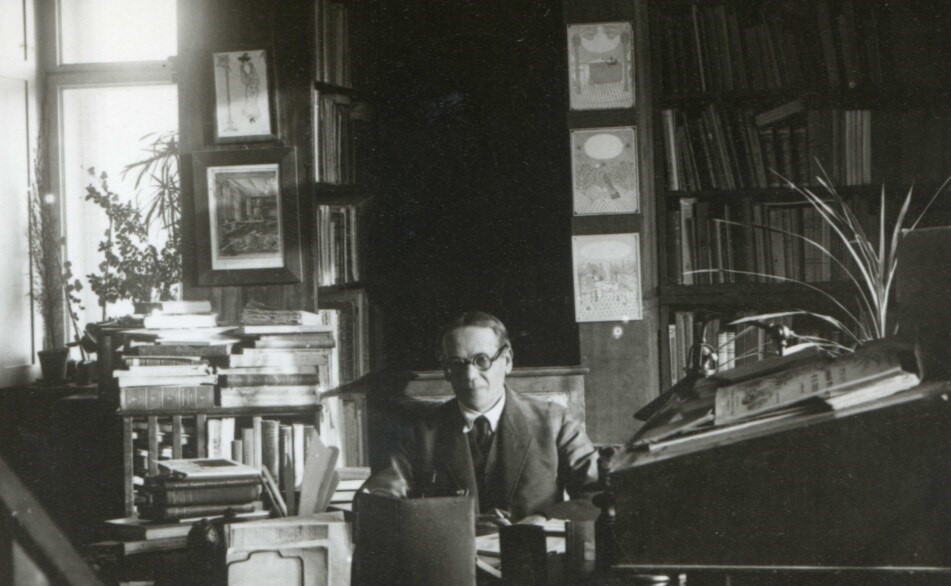Philosopher executed for not being a communist: Who is Gustav Shpet?
Although he engaged in various intellectual activities in many fields in the early years of the Bolshevik regime, as an openly non-Marxist intellectual he was not allowed to retain a teaching position.

Gustav Shpet, a professor of philosophy at Moscow University, brought Husserlian transcendental phenomenology to Russia. He has also written extensively on aesthetics, hermeneutics, the history of Russian philosophy, and the philosophy of language. Throughout the years, Stalinism in Russia has been accused of being idealist in philosophy and counter-revolutionary in politics. The depth and breadth of his numerous works stand before us as an indicator of the philosophical spirit in Russia in the last years of the Tsarist period.
Gustav Shpet was born in Kyiv in April 1879. Late in his life in the Stalinist period, he tried to highlight his humble background as the illegitimate son of a tailor. In fact, it appears that his maternal grandfather was a Polish nobleman. There is no information available about his father. It is also unclear whether he received any religious education. He stated his religion as Lutheran on his university registration form, but his mother appears to be Catholic, according to family records.
Gustav Gustavovich Shpet (April 7, 1879, Kiev, Russian Empire November 16, 1937, Tomsk, Russian) was a Russian philosopher, historian of philosophy, psychologist, art theoretician, and interpreter (he knew 17 languages) of German-Polish descent.
Completing his education at a gymnasium (secondary school) in Kyiv, Gustav Shpet enrolled at the university there in 1898. Also during this period, he became involved in a Marxist circle, although the extent of his active participation is unclear. In each case, his participation resulted in his expulsion from the university. However, he was allowed to continue classes after a relatively short time. From then on, Gustav Shpet always kept a respectable distance from philosophical Marxism, while maintaining a moderate sympathy for its socio-economic ideals. After completing his education in 1906, he taught at a high school in Kyiv for a while, but when his former teacher Georgij Chelpanov took over the philosophy chair vacated by Sergej Trubeckoj, he followed him to Moscow in 1907.
Shpet continued his education at the university in Moscow and worked at Chelpanov's newly founded psychological institute. He also gave lectures at various educational institutions in the city. During the summer months of 1910 and 1911, Gustav Shpet traveled to Paris, Edinburgh, and various parts of Germany in connection with the psychological institute and his own thesis research. On one of these trips he encountered Husserl for the first time, but it was not until his stay in Goettingen in the academic year 1912-13 that he came under Husserl's influence.
Although he engaged in various intellectual activities in many fields in the early years of the Bolshevik regime, as an openly non-Marxist intellectual, Gustav Shpet was not allowed to retain a teaching position for long. His name appeared on Lenin's list of those to be exiled from Russia in August 1922; This list included many prominent philosophers, such as Berdyaev, Lossky, and Lapshin. However, Shpet appealed to the Soviet minister of culture, Lunacharskij, whom he knew from his student days in Kyiv, and had his name removed from the list.
With the establishment of the Russian Academy of Cultural Studies in 1923, Gustav Shpet was appointed vice president of this academy. Here he continued his academic studies but changed direction somewhat, or perhaps more accurately, moved away from pure philosophy. Again, despite his and his colleagues' productive work, the Academy was closed in 1929, even though it was at least nominally run by a Marxist. For the next few years, he earned his living mainly by preparing translations of authors such as Dickens and Byron and also participated in the preparation of a Russian edition of Shakespeare.
On March 14, 1935, Shpet was arrested along with several other former colleagues from the State Academy, accused of anti-Soviet activities, and sentenced to five years of internal exile. That same year, his place of exile was changed to Tomsk, a university town in Siberia, where Shpet prepared a new Russian translation of Hegel's Phenomenology of Spirit. He was arrested again on October 27, 1937, and accused of being a member of a monarchist organization. Recently unearthed documents from the former KGB headquarters in Tomsk show that Gustav Shpet was executed on November 16, 1937.
